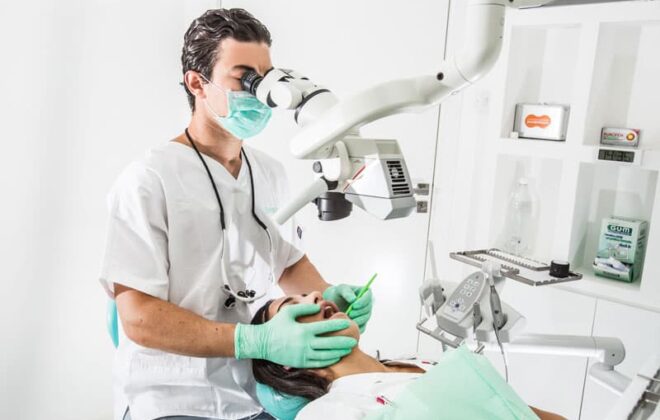What is Dental Trauma?
Dental trauma is physical injury to the teeth, gums, the alveolar bone (the bone that holds the tooth sockets), or the soft tissue of the mouth, including the lips and tongue. There are several types of injury that fall under the category of dental trauma, including the following:
- Chipped tooth
- Tooth fractures, including root fractures, enamel fractures, etc.
- Tooth knocked loose (subluxation)
- Tooth jammed into socket (intrusion)
- Tooth knocked out (avulsion)
- Fracture of the tooth socket wall
- Jaw fracture
- Lacerations of the lips
- Lacerations of the gums
What are the causes of dental trauma?
Most cases of dental trauma are caused by accidents, including falls, vehicle collisions, and playing sports. Some cases are due to being involved in violent incidents, such as fighting or physical abuse.
Treatments for dental trauma
The treatment depends on the nature of the trauma. Injuries to the mouth and teeth should be examined by a dentist, especially if a tooth or teeth have become loose or sustained damage. In some cases, when a tooth is visibly damaged, the neighbouring teeth may also have injuries that are not necessarily visible unless detected by a dental exam.
- For chipped or fractured teeth, a tooth-coloured filling may be recommended to replace the lost part of the tooth. If a significant part of the crown has been lost, an artificial crown or cap may be offered instead.
- If the pulp is exposed, a root canal may be needed.
- Injuries to the back teeth, including fractured cusps, may require a root canal and full coverage crown.
- More serious injuries such as split teeth may require the tooth to be removed completely.
- Dislodged (luxated) teeth should be restabilised by the dentist and root canal treatment may be needed.
- Children under the age of 12 may not need root canal treatment, as their teeth as still developing and may be able to heal on their own. The dentist will monitor them carefully to see if any additional treatment is needed.
- Teeth that have been knocked out (avulsed) may be replanted if you act quickly. You should see your dentist or an endodontist immediately – if you receive treatment within 30-40 minutes, there is a good chance you will save the tooth; any longer than this and the odds diminish considerably. If the tooth can be found, handle it carefully by the crown – don’t touch the root! The dentist will place it back in its socket and a stabilising splint will be placed for a few weeks, after which you may require root canal treatment.
- In some cases, such as if the knocked out tooth cannot be found, or if it is not treated soon enough, other treatment options to replace the tooth may be discussed.
Which type of specialist treats dental trauma?
Dentists treat all kinds of tooth problems, and your dentist will probably be your first point of call after sustaining dental trauma. Within dentistry, endodontists specialise in treating injuries to the teeth, using advanced skills and techniques to save injured teeth. Patients in Toronto looking for an endodontist can reach out to York Hill Endodontics by clicking here or calling 416-781-5251.
Article originally appeared at: https://www.topdoctors.co.uk/
Author: Top Doctors UK



